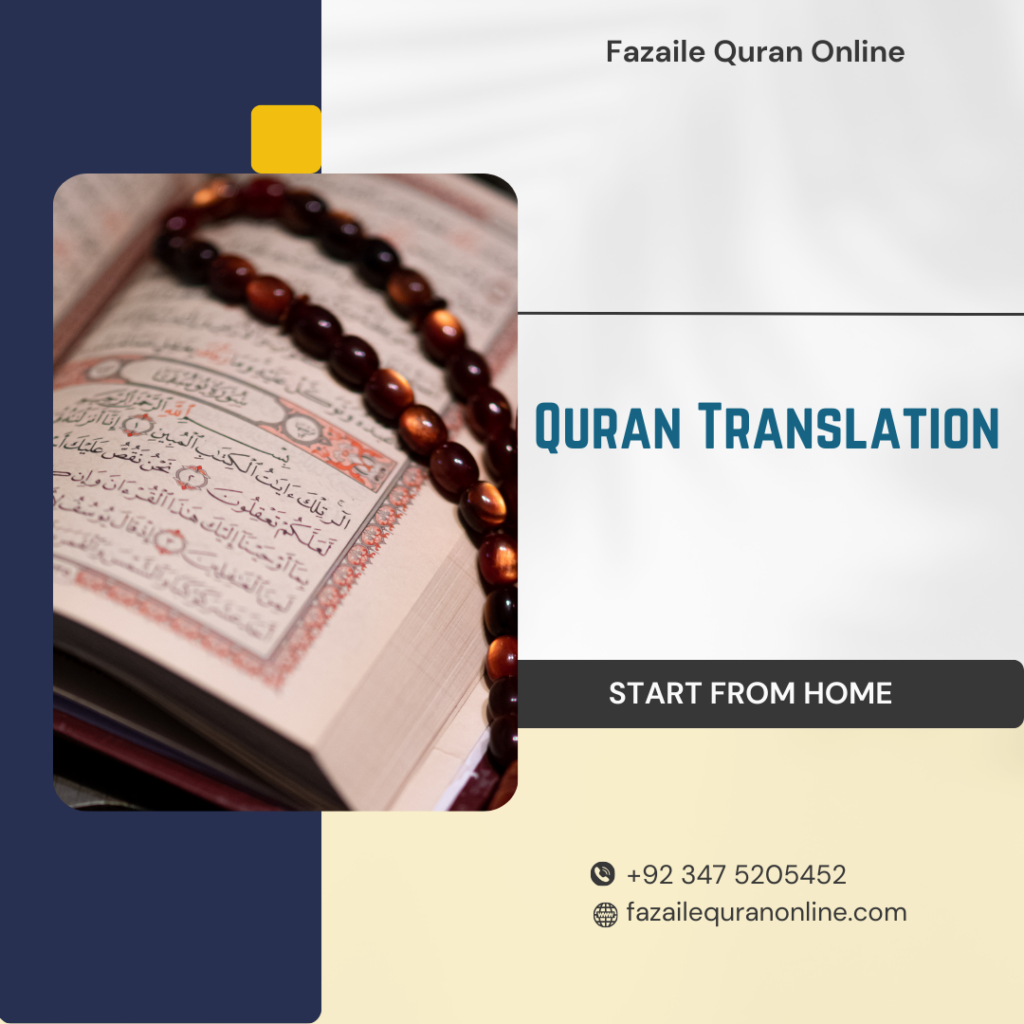Quran Translation
Quran Translation
Overview of Quran Translation
An online Quran translation refers to the digital availability of the Quran, translated from its original Arabic language into various languages, making the text accessible to people worldwide who may not understand Arabic. These online platforms provide a means to read, study, and understand the Quran through translations, tafsirs (interpretations), and various related resources.

1. Multiple Translations
- Online Islamic platforms often feature translations in numerous languages, such as English, Urdu, French, Spanish, and many others. These translations cater to diverse audiences, ensuring that non-Arabic speakers can read and understand the meanings of the Quran.
- Some platforms may offer translations from prominent scholars or contemporary translators.
2. Tafsirs and Explanations
- Tafsir refers to the commentary or interpretation of the Quran. Many online islamic sites include not only the translated text but also accompanying tafsirs that help to explain difficult verses or provide historical and contextual background.
- These commentaries help users understand deeper meanings, the reasons behind revelations, and practical applications of Quranic teachings.
3. Audio and Recitation
- Many online Islamic platforms also provide audio recitations, sometimes by famous Qaris (Quran reciters). This allows users to listen to the correct pronunciation and intonation of verses in Arabic, which is a crucial part of Islamic learning.
- Some platforms offer a feature where users can listen to the recitation while following along with the translation.
4. Interactive Features
- Some websites offer interactive tools such as search functions, verse-by-verse translation, highlighting, and bookmarking options.
- Some platforms allow users to compare different translations side by side, providing a broader understanding of specific verses.
- Features like “word-by-word” translation or explanations for each word can also be useful for beginners.
5. Mobile and User-Friendly Design
- Many platforms optimize their websites for mobile devices, providing apps or responsive sites to make accessing Quran translations easy on the go.
- These sites are often designed with an easy-to-navigate interface, allowing users to find specific surahs, chapters, or topics with ease.
6. Language Learning and Educational Resources
- Some online Quran translation websites also include resources for those wanting to learn Arabic to read the Quran in its original language.
- They may feature tools for learning Tajweed (pronunciation rules) or even basic Arabic lessons focused on Quranic texts.
7. Access to Digital Books and Resources
- In addition to the Quran, many sites provide access to other Islamic texts, such as Hadith collections, Fiqh (Islamic jurisprudence) books, and more, often to complement Quranic study.
8. Accessibility and Inclusivity
- These online platforms help to break down barriers for people who might not have physical copies of the Quran or those living in regions with limited access to printed texts.
- Many websites are also designed with accessibility features for people with disabilities, such as screen reader support and adjustable text sizes.
Popular Online Quran Translation Platforms
- FazaileQuranOnline: While I couldn’t specifically access this site at the moment, websites like this typically offer similar resources, including translation, tafsirs, and interactive features for easy study.
Conclusion
Online Quran translations play an essential role in spreading the knowledge of Islam globally. These platforms not only provide the Quran’s meanings in many languages but also offer additional resources for study and understanding, such as tafsirs, recitations, and educational tools. Whether for casual reading or deep scholarly study, these online tools make the Quran accessible to millions of people around the worl
